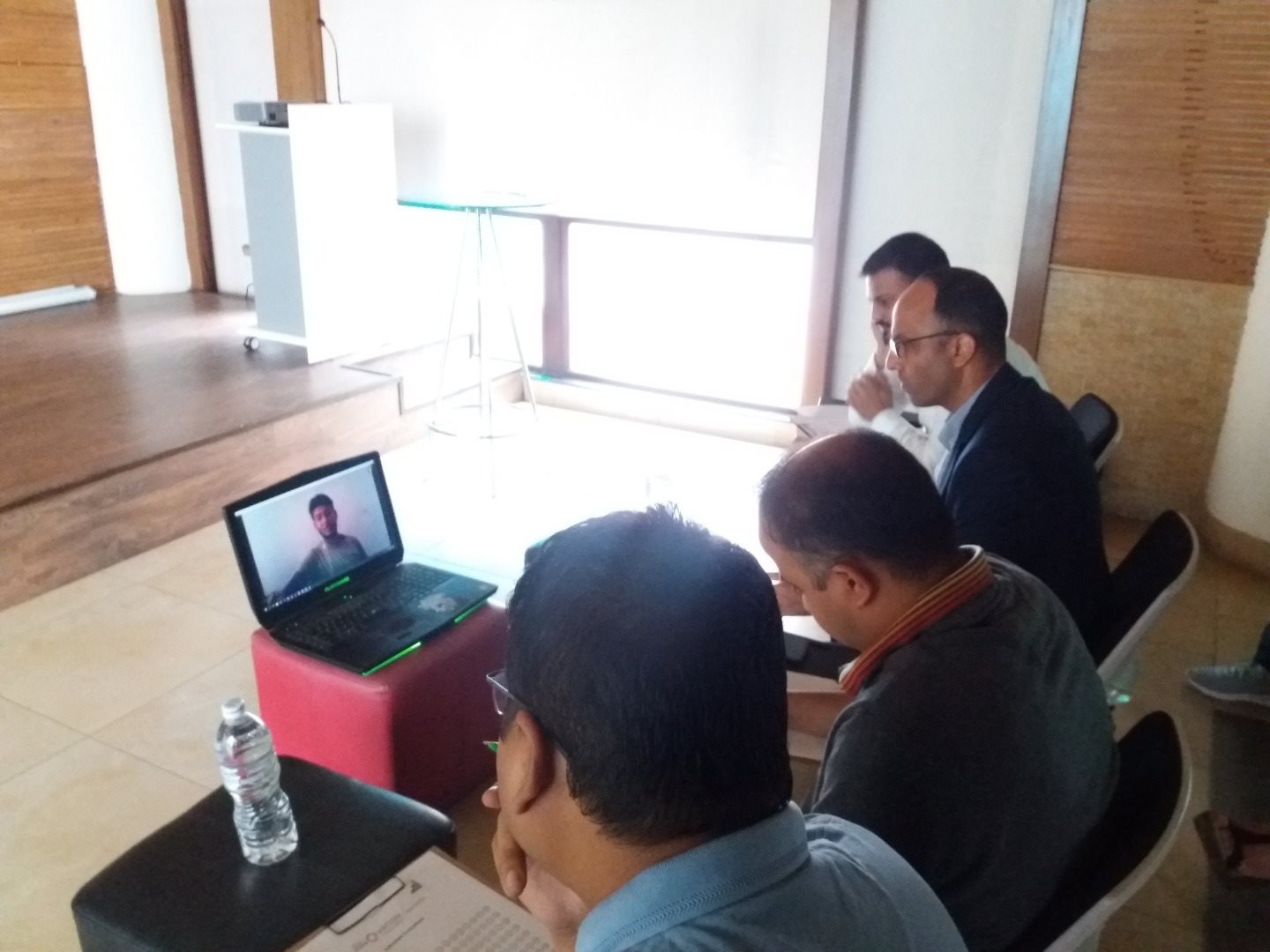Nepal Innovation Challenge- AgriTECH Announces The Top 8 Finalists
Tags
 Our panel of judges interviewing the participants from Chitwan.
Our panel of judges interviewing the participants from Chitwan.
The first-ever Nepal Innovation Challenge-AgriTECH received a total of 123 registrations and 69 final submissions, in just 3 weeks, from start-ups companies, FinTechs and pre-seed stage teams. A panel of independent evaluators profiled and assessed the ideas in terms of potential impact, sustainability of the proposed idea, uniqueness and creativity of the solutions offered.
“The amount of responses from the AgriTECH challenge has been overwhelming. It reflects the zeal of Nepal's start-up community and entrepreneurs to serve the last mile customers. The next 3 months of bootcamp and product development phases will be a learning experience for all of us at UNCDF. Together with the participants, we will work to create and develop innovative tech solutions for the agriculture sector in Nepal.”- Mr. Abhay Pareek, Digital Finance Expert at UNCDF. The panel shortlisted 21 out of 69 teams who then proceeded to the interview round. During this round, the judges had a one-on-one session with each team and chose the 8 finalists who would proceed to the bootcamp phase.
The top 8 finalists are:
1) Airlift: A drone technology service which addresses the challenge of having to spray pesticide without much knowledge on how, where and when to spray. In 20 minutes, the drone can cover 0.1 sq. km. of infected land with 95% accuracy. Farmers can access the digital platform through their smartphones and view their farm land and track the health of their crops and yield.
2) Green Growth Group: Green growth is an online platform that oversees supply chain management of local, organically/naturally produced safe-for-consumption products. The company is working on promoting sustainable living. The idea is to link the producers to the consumers directly by using new media technology along with less environment degradation.
3) Saptkrishi: The team has developed a minimum viable product termed as the ‘Sabjikothi,' colloquially translated to a chamber of vegetables, that can be utilized for the storage of perishable fruit and vegetable for up to10 to 40 days depending upon the particular crop. They are currently developing a mobile app whereby the farmers can control the microclimate inside the storage and also provide a platform for farmers to receive suggestive advises on pre and post-harvest season.
4) ZEN IT Hub: This company aims to bring together all stakeholders such as farmers, suppliers, experts and Banking and Financial Institutions under one common digital platform. This mobile app will approach the challenges of farmers by keeping him at the center of the eco-system.
5) eSaatya: The team aims to create traceability in agriculture supply chain for produce. They are using smart phone to log data for various stages of a produce from farm to fork. The information will be stored in blockchain to make the logs transparent and immutable. It will regulate the middlemen(accountability); farmers will get a fair price for what they grow (profitability) and consumers get what they paid for (quality assurance).
6) Harke: The team aims to initiate the agricultural revolution through robotics in Nepal. Harke is especially designed for tomato farming. The vision is to bring about a positive change in the living standard of farmers in Nepal. The objective is to design a modular, multi-functional robot that is cable of performing different tasks related to farming; such as hassle-free sorting, grading, spraying pesticides and harvesting of tomatoes. A prototype of Harke has been developed.
7) Data Fooders: The team is developing an augmented reality (AR) based solution called Agri-Augment, which will overcome the barriers of language and technicality, visually transform the information and enable better use of the mobile application. With the Agri-Augment solution, the farmer can point the camera of his/her phone onto the crop and virtually visualize on the phone, how the disease would look like in the event of an infection/damage. The solution can be augmented with backend frameworks of existing mobile applications.
8) Crop Cycle Keepers: To address the challenge of crop cycle management, the team has developed a web portal and mobile application which runs on an algorithm to plan the production cycle well in advance. The algorithm constantly updates itself by using data recorded by the farmers (date, temperature, humidity) and update the production cycle every year. This app also provides information on land preparation, fertilizers, seeds/seedlings, plantation method etc.
The top 8 finalists will take part in the bootcamp session that will take place in Kathmandu from 30 May to 3 June. The AgriTECH challenge is part of UNCDF’s Financial Innovation Lab initiative. Each of the 8 finalists will receive guidance, training and mentorship on all aspects of business development and customer interaction from a set of experts and business managers.
At the end of the accelerator programme, 2 winners will receive a grant up to USD30,000 and 1 year of technical assistance from UNCDF to pilot their idea.